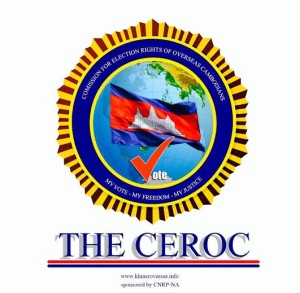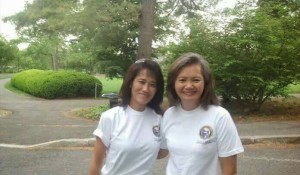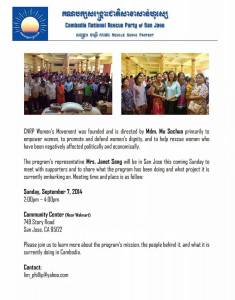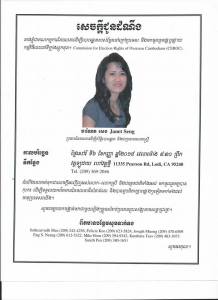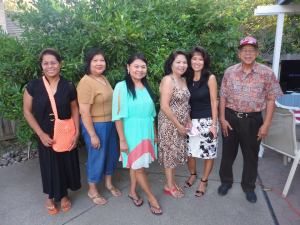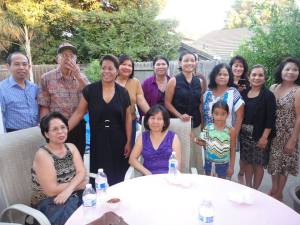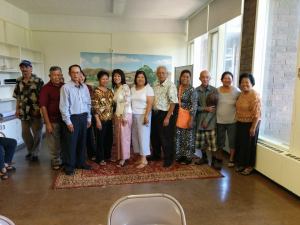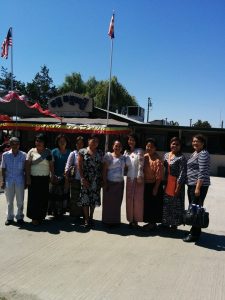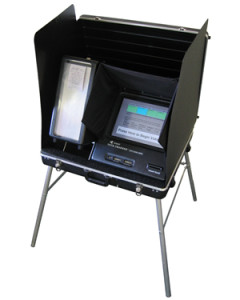 Electronic voting has failed to catch on at the municipal level, reflecting problems with voting machine glitches and the high cost of developing and maintaining the systems.
Electronic voting has failed to catch on at the municipal level, reflecting problems with voting machine glitches and the high cost of developing and maintaining the systems.
Only three municipalities in the nation — the city of Kyoto, the city of Niimi in Okayama Prefecture , and the town of Rokunohe in Aomori— are conducting electronic voting, and there is little momentum for expanding its use to national elections.
A law authorizing electronic voting took force in February 2002 with the aim of speeding up the laborious process of ballot counting, which is traditionally done by hand. In electronic voting systems, ballots are cast via touch screens or other digital means.
Laws must be enacted in each town, city of prefecture to enable electronic voting, but only Mie and Okayama prefectures and 10 municipalities have opted to do so.
This is mainly because electronic voting has mostly proven unreliable and expensive to develop and maintain, let alone secure.
Kani, Gifu Prefecture, was forced to hold a revote after electronic voting booths malfunctioned during a city assembly election in 2003. It has since frozen the ordinance.
“After dispelling public distrust in electronic voting, we will think about resuming it,” a city official said.
Ebina, Kanagawa Prefecture, also scrapped its electronic voting ordinance following malfunctions. The city of Shiroishi in Miyagi pulled the plug after leasing the machines proved to expensive.
Of the three municipalities that have stuck with electronic voting, views remain mixed on the practice.
Niimi, the first municipality to adopt electronic voting, in 2002, plans to carry on with the system.
“We are not worried about device failures. Wider use of electronic voting can help cut costs,” a city official said.
Meanwhile, a Kyoto official said it is time to reconsider.
According to a Internal Affairs and Communications Ministry survey in 2010, more than 90 percent of municipalities have no plans to use electronic voting, noting that such systems aren’t even used in for national elections.
The Fukushima Prefecture village of Otama suspended electronic voting after the March 2011 earthquake and tsunami. It has no plans to restart it in view of national politics regarding the system, an official said.
A bill to enable electronic voting in national elections was scrapped in 2008, and there have been hardly any moves to submit similar bills.
For your reference: Japan Time

